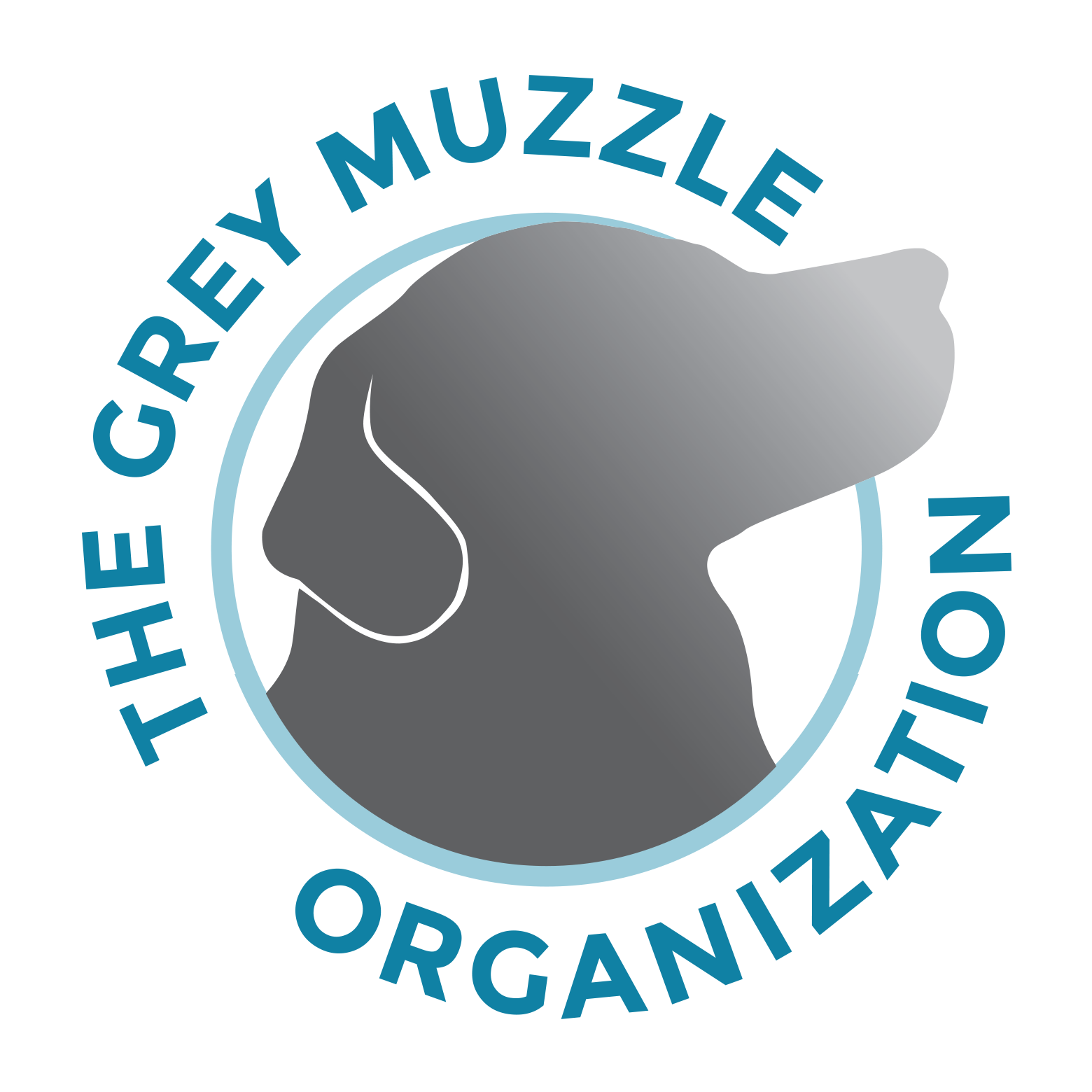Natural Ways to Treat Anxiety in Older Dogs
This is a guest post on the Grey Matters Blog and not written by anyone affiliated with Grey Muzzle. We allow guest contributors from time to time in order to provide our supporters with a wide range of topics pertaining to senior dogs.
Just like people, many dogs live with feelings of anxiety. Some dogs have anxiety due to past experiences, and others may have anxiety related to their breed. Some animals may have been anxiety-free their whole life and then develop anxious tendencies in their old age. Whether your dog has always been anxious or is just now developing symptoms, there may be some natural ways to treat it.
Understanding the signs of anxiety can help you determine if your pet is struggling with its symptoms. After speaking to your vet, you can try some calming supplements to ease their nerves. Keeping dogs busy and exercised may help distract them from their anxious feelings. Finally, many dogs find the most comfort in companionship.
Signs of Anxiety
Anxiety can be caused by many things: fear, separation, pain, confusion, or illness, for example. Some dogs experience anxiety in specific situations, like during a thunderstorm or when unfamiliar people are around. In order to help your dog, it’s important to understand the symptoms of anxiety so that you can discuss these symptoms and possible treatment options with your vet. Some common signs of anxiety include:
- Trembling or tucking the tail
- Hiding or trying to escape
- Obsessive behavior, such as licking or chewing
- Loss of appetite
- Pacing or wandering
- Barking or whining
Older dogs may develop anxiety as a result of being in pain. They may also develop anxiety as they begin to experience dementia and become disoriented. If your dog was already anxious to begin with, their age may exacerbate it. It’s important to speak to your vet immediately when you spot any symptoms before trying to treat your pet yourself.
Natural Supplements
There are many natural options that have been used to treat anxiety in humans as well as dogs. These options can provide a calming reaction that can ease your dog’s anxiety and won’t have any harmful side effects. Though these are natural supplements, it’s still important to speak to your vet before giving any supplements to your aging pup. Some common oils, herbs, and supplements that can help include:
- CBD oil: Cannabidiol (CBD) oil is derived from cannabis and is often used to relieve anxiety in dogs. Because it does not have the THC compound that causes the “high” that marijuana is typically known for, it is safe for use. It’s commonly used for older dogs due to its calming and anti-inflammatory properties.
- Melatonin is a hormone that animals naturally create when they sleep, so many pet owners use melatonin supplements to help their dog stay calm in periods of anxiety or stress. This is also used for insomnia, which is another issue that many senior dogs may experience.
- There are plenty of products you can purchase that use calming pheromones similar to the pheromones a mother would produce to calm their puppies.
- Valerian is an herbal sedative that is gentle and promotes relaxation in pets while calming nerves. Just be sure to check with your vet before giving your dog valerian supplements as they can cause issues when combined with other medications.
- People use lavender to help them sleep, feel calm, and alleviate pain, and it can do the same for your pup.
Keeping Them Busy
Whether your dog has periods of anxiety or situational anxiety, a distraction can help them manage their symptoms or expend some of that anxious energy. Keep your senior dog busy by providing them with chew toys or activities that provide mental stimulation, such as puzzle toys, some one-on-one time with you to learn a new trick, or some time being brushed. This mental stimulation and busy work can also be beneficial for your older dog’s mind as they age.
Providing Exercise
Another way to keep your dog busy while treating their anxiety naturally is to provide them with plenty of exercise. In the same way that exercise boosts a person’s mental health and happiness, it can provide the same perks for your dog.
Dogs live to exercise, and they can find so much stimulation in new smells, experiences, and friends. Even just a short walk or game of fetch can help alleviate their feelings of anxiety. It also helps to wear them out so that their anxiety doesn't creep up. If your senior dog has issues with their joints or muscles, you can try low-impact exercises like swimming, which can help with their pain as well.
Offering Companionship
Sometimes your dog may feel the most at ease when they are with their person. If your older dog is experiencing anxiety, you might try to offer some companionship. You can try cuddling on the couch together or even giving them a massage to aid in anxiety relief. Giving them a little 15-minute massage on their feet, ears, or head can help alleviate stress. Even sleeping with your dog, though it has its positives and negatives, can help with their nighttime anxiety or pacing.
Anxiety can be a difficult feeling for many senior pets who may be experiencing pain, confusion, or fear. Thankfully, there are some natural ways to help dogs who are living with symptoms of anxiety. Natural supplements, staying busy, getting exercise, and receiving love and attention can be the perfect natural treatment options. Just remember to speak to your vet if your dog is exhibiting any of the common symptoms of anxiety to discuss these options. Soon, your senior pup can begin to feel calm and happy in their old age.
You can follow him and Scrummy on Twitter.



